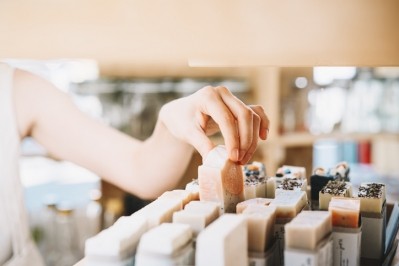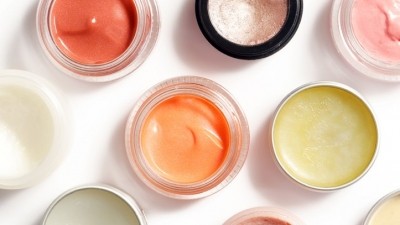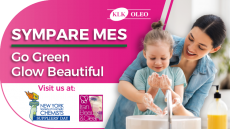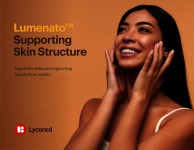Enterprise boost: China ready to allow use of nano and biotech materials in cosmetics for the first time

This is according to experts who presented at the CRAC-HCF 2020 Virtual Forum.
The session focused on a new regulation titled Instructions for New Cosmetic Ingredient Registration and Notification Dossiers. It was first drafted in August 2020 by China’s National Medical Products Administration (NMPA), with a second draft released in November 2020 for public consultation.
New cosmetic ingredients (NCI) are defined as natural or artificial ingredients used in cosmetics for the first time in the country, outside its Inventory of Existing Cosmetic Ingredients in China (IECIC).
Professor Hua Zhao, from the Beijing Technology and Business University, said the addition of nano material was good news for enterprises but highlighted the importance of safety.
Nano materials are used in a wide range of skin care and cosmetic products from sunscreens to face masks, however there were some concerns of its cancer-inducing properties.
“Previously, we were not allowed to claim nano-materials due to safety concerns. With EU recognising nano-ingredient risk assessment for the past several years, we have started to hold a more open attitude in this regard. Nano-ingredients can be used in cosmetics as long as they are clarified in detail and if they pass the safety risk assessment.”
Under article 21 of the regulations, nano ingredients must indicate particle size and distribution, aggregation and agglomeration characteristics of the ingredients, surface chemical information (including Zeta potential/surface charge, surface coating conditions, modified conditions and catalytic activity, etc.), morphology information (including shape, specific surface area, surface topological structure, crystal structure, etc.).
Biotech materials
Zhao added the draft regulations would also apply to biological and fermentative ingredients which have been popular in recent years.
“As long as you can clarify the substrate, culture, animal stem cells, plant stem cells, amino acid sequence and structures, and passing the safety assessment, they can be used in cosmetics.”
New ingredients from biotechnology source such as oligopeptides, polypeptides and proteins must indicate information on donor organisms, receptor organisms, and modified microorganisms and others.
Registration and notification process
Under this regulation, NCIs will be categorised into high risk and low risk.
High risk NCI are those involved in preservatives, UV filters, colourants, hair dyes, freckle removal, and whitening agents. Categories outside of these are considered low risk NCI.
High risk NCI will require registration with NMPA and a technical review, while low risk NCI only require a notification (submission of documents).
Testing will have to be conducted for all NCIs, whether high or low risk. The list of tests comprises eye irritation, skin sensitisation, skin phototoxicity if there is UV absorption, inhalation toxicity test and others.
Under article 12 of the regulation, all physical, chemical, microbiological, toxicological tests and evaluation reports must be conducted in China via its official testing compliant institutions in China.
China regulates that all testing must be conducted in China via its official testing compliant institutions in China.
Once the documents and testing reports are ready, companies submit their applications to the NMPA online.
For low risk NCI, after submission of the documents, companies can begin importing NCI and authorising cosmetic companies to use NCI. However, they are still subjected to strict post-market surveillance.
For high risk NCI, it will take a maximum of 128 days including a technical review. Once the review is passed and the registration certification is approved, the NCI can be imported and cosmetic companies can be authorised to use it.
Currently, the registration process of a new ingredient takes several years, even for a simple ingredient such as edible vegetable oil. According to ChemLinked, from 2004 to 2020, only 10 new ingredients have been approved so far.
The new regulation will simply the process for cosmetic companies to introduce new ingredients, and boost innovation in this space.
If there are no safety issues found for the registered and notified new cosmetics ingredients within a period of three years, the NCI will be added into the IECIC.
According to Zhao, the list will be updated annually. The list includes more than 800 ingredients.
Once added into the IECIC list, re-assessment and safety reports may be ordered if there is safety concerns or new evidence stating so.
The new regulations will promote closer collaboration between ingredient suppliers and finished product manufacturers, because if a new ingredient were to be rejected by the government within the three-year monitoring period, the finished product containing this ingredient would then be rejected accordingly.
There are 28 articles in the NCI draft regulations.
These instructions were formulated in accordance with the requirements of Cosmetic Supervision and Administration Regulation (CSAR).
The CSAR is a new regulation replacing the existing cosmetics regulation, Cosmetics Hygiene Supervision Regulation (CHSR), which was first established over 30 years ago.
CSAR will be implemented on January 1, 2021.
![Recherché has launched its first range of edible skin care and plans to expand the line further. [Recherché]](/var/wrbm_gb_food_pharma/storage/images/_aliases/wrbm_medium/publications/cosmetics/cosmeticsdesign-asia.com/headlines/brand-innovation/recherche-plans-to-expand-edible-skin-care-line-up-to-tap-into-interest-in-category/12194737-1-eng-GB/Recherche-plans-to-expand-edible-skin-care-line-up-to-tap-into-interest-in-category.jpg)

![SAMR publishes full details of new rules that will be enforced on May 1, 2021. [GettyImages]](/var/wrbm_gb_food_pharma/storage/images/_aliases/wrbm_medium/publications/cosmetics/cosmeticsdesign-asia.com/headlines/regulation-safety/china-samr-publishes-full-details-of-new-cosmetic-registration-rules-that-will-be-enforced-in-may/12101356-1-eng-GB/China-SAMR-publishes-full-details-of-new-cosmetic-registration-rules-that-will-be-enforced-in-May.jpg)






![Latest developments from the South Korean beauty market. [Getty Images]](/var/wrbm_gb_food_pharma/storage/images/_aliases/wrbm_tiny/publications/cosmetics/cosmeticsdesign-asia.com/headlines/brand-innovation/korea-focus-able-c-c-kolmar-and-more-in-this-k-beauty-round-up/17357973-1-eng-GB/Korea-focus-Able-C-C-Kolmar-and-more-in-this-K-beauty-round-up.jpg)

![Able C&C has furthered its partnership with Japanese discount chain Daiso with new makeup launch. [A'pieu]](/var/wrbm_gb_food_pharma/storage/images/_aliases/wrbm_tiny/publications/cosmetics/cosmeticsdesign-asia.com/headlines/brand-innovation/a-pieu-and-daiso-launch-exclusive-2-makeup-line/17339117-1-eng-GB/A-pieu-and-Daiso-launch-exclusive-2-makeup-line.jpg)
![Down Under Enterprises is setting sights on the Asian market as environmental sustainability and traceability become increasingly important. [Getty Images]](/var/wrbm_gb_food_pharma/storage/images/_aliases/wrbm_tiny/publications/cosmetics/cosmeticsdesign-asia.com/headlines/market-trends/down-under-enterprises-shifts-focus-to-china-as-environmental-sustainability-traceability-come-into-the-spotlight/17304932-1-eng-GB/Down-Under-Enterprises-shifts-focus-to-China-as-environmental-sustainability-traceability-come-into-the-spotlight.jpg)
![News updates from Shiseido, Dr.Ci:Labo, Sephora, and more. [Shiseido]](/var/wrbm_gb_food_pharma/storage/images/_aliases/wrbm_tiny/publications/cosmetics/cosmeticsdesign-asia.com/headlines/brand-innovation/updates-from-shiseido-dr.ci-labo-sephora-and-more/17334944-1-eng-GB/Updates-from-Shiseido-Dr.Ci-Labo-Sephora-and-more.jpg)

![Clariant has underscored the importance of localisation strategies and distribution capabilities in China with beauty trends evolving at a rapid pace. [Getty Images]](/var/wrbm_gb_food_pharma/storage/images/_aliases/wrbm_tiny/publications/cosmetics/cosmeticsdesign-asia.com/article/2024/04/16/clariant-emphasises-importance-of-localisation-in-the-era-of-viral-trends/17327969-1-eng-GB/Clariant-emphasises-importance-of-localisation-in-the-era-of-viral-trends.jpg)



